#indigenous representation
Text
youtube
Watch Echo. Please. Please.
I cannot stress enough how important it is to see this kind of representation, this kind of investment from a company like Marvel, in telling indigenous peoples' stories. They consulted with the Choctaw nation, they DUBBED THE ENTIRE SERIES IN CHOCTAW. Choctaw is an endangered language! Fewer than 500 people remain that speak it fluently! And here it is, preserved in a Marvel Show about a Native Super Hero!!!!
I know you have MCU fatigue, I get it. I understand that some of the disney+ Marvel shows have been underwhelming. But I am BEGGING YOU. Just watch Echo. Just give it a chance, give Her a chance. The world is a better place with stories like this in it, and the only way we will get more of them is if we show companies like Marvel that their investment isn't a waste.
#Marvel#Echo#Maya Lopez#Marvel Echo#marvel mcu#Choctaw Nation#indigenous representation#Fandom: Marvel#c: Maya Lopez | Echo#Echo: media#Youtube
4K notes
·
View notes
Text
Always a good annual reminder
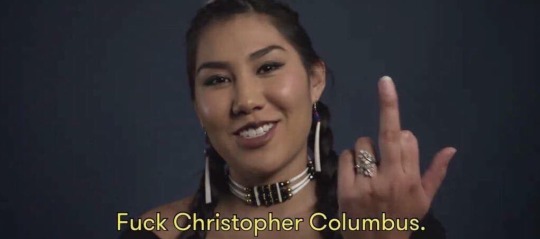
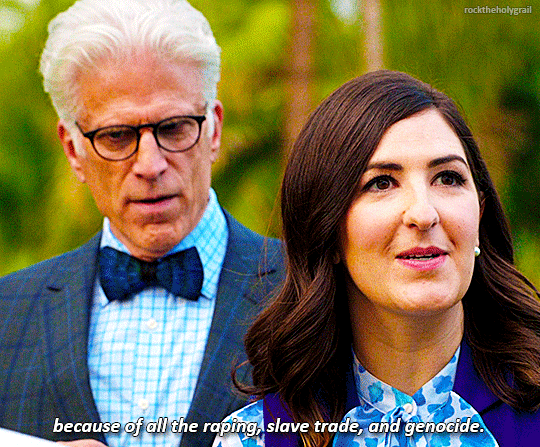
#fuck christopher columbus#indigenous representation#indigenous rights#indigenous peoples day#leave smallpox out for the colonizers#remember Christopher Columbus is in the bad place for all the r*ping and pillaging#gif#tgp#the good place#fuck colonizers#and fuck thanksgiving too
13K notes
·
View notes
Text
Christopher Cote, an Osage language consultant on the project and one of many Osage members who attended its Los Angeles premiere Monday, told THR he was “nervous about the release of the film; now that I’ve seen it, I have some strong opinions.
“As an Osage, I really wanted this to be from the perspective of Mollie and what her family experienced, but I think it would take an Osage to do that,” Cote said, referencing Lily Gladstone’s character in the movie. (Historical spoilers from the film ahead.) “Martin Scorsese, not being Osage, I think he did a great job representing our people, but this history is being told almost from the perspective of Ernest Burkhart [played by Leonardo DiCaprio] and they kind of give him this conscience and kind of depict that there’s love. But when somebody conspires to murder your entire family, that’s not love. That’s not love, that’s just beyond abuse.”
He continued, “I think in the end, the question that you can be left with is: How long will you be complacent with racism? How long will you go along with something and not say something, not speak up, how long will you be complacent? I think that’s because this film isn’t made for an Osage audience, it was made for everybody, not Osage. For those that have been disenfranchised, they can relate, but for other countries that have their acts and their history of repression, this is an opportunity for them to ask themselves this question of morality, and that’s how I feel about this film.”
#killers of the flower moon#christopher cote#martin scorsese#film#cin#media representation#racism#Indigenous representation
586 notes
·
View notes
Text
Wilson Fisk is terrifying.
obviously he is, he's a villain, but I never felt scared for someone interacting with Fisk like I was while watching Maya interact with him in Echo.
He says he loves her, he says they only can trust each other. That nobody loves her like he does.
But then he doesn't learn ASL to speak to her, instead he spends so much money getting a translator who he ends up killing. And then in super high tech technology as an eye contact so Maya can understand him.
He does small things to show his "love" but I see them as calculated and honestly, not genuine at all, because he knows what he has to do to get her to believe that he truly cares and loves her. but he breaks that illusion by not doing the simplest, most obvious act of love, learning to speak to Maya. Learning ASL.
Her whole family knows ASL. and can speak ASL even after 20 years of not seeing her, even if some of their skills are rusty, they still do. and it speaks volumes.
Then when she goes back home, to her town and family, he still dares to want her back, like "come with me, these people aren't important, they'll never understand you like I do."
BITCH THEY'RE HER FAMILY THAT YOU REMOVED HER FROM WHEN SHE WAS IN PAIN AND IN PIECES YOU MANIPULATOR!!!!
So so angry at seeing a white man being entitled to someone's life choices (esp if they're of colour)
#echo#echo tv#echo marvel#marvel#mcu#maya lopez#Wilson Fisk#matt murdock#daredevil#disney+#alaqua cox#charlie cox#vincent d'onofrio#native american#indigenous representation
230 notes
·
View notes
Text
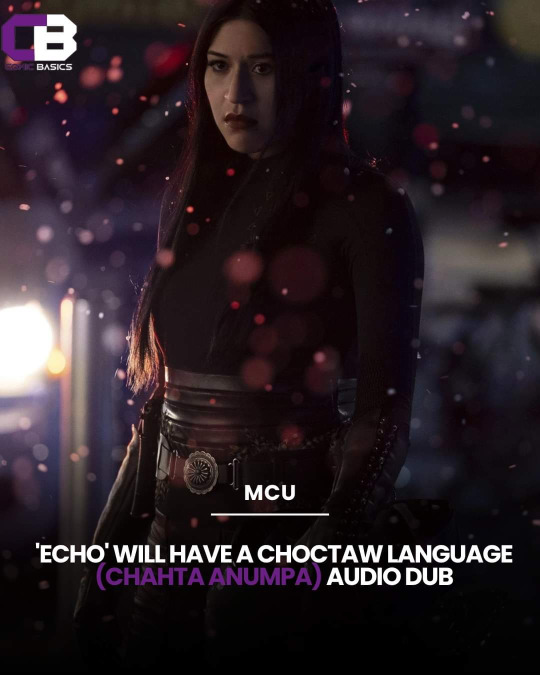
ECHO will have a Choctaw Language (Chahta anumpa) Audio dub!
#echo#mcu#marvel#maya lopez#alaqua cox#choctaw#chahta anumpa#indigenous representation#native representation#language
203 notes
·
View notes
Text
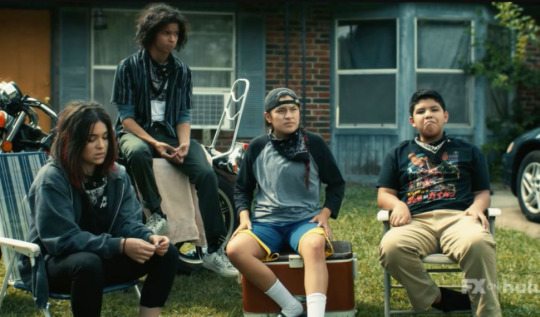
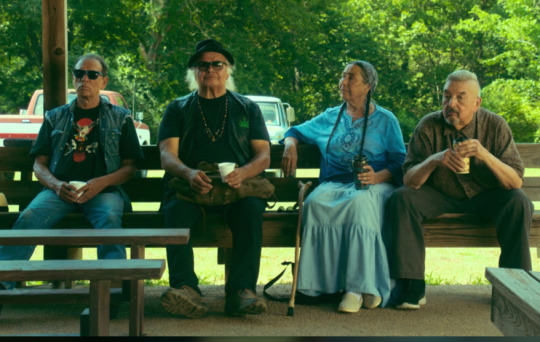
The young ones and the elders.
#reservation dogs#rez dogs#the elders#bear smallhill#elora danan postoak#willie jack#cheese#bucky#uncle brownie#irene#maximus#devery jacobs#d'pharaoh woon a tai#paulina alexis#lane factor#wes studi#gary farmer#casey camp-horinek#graham greene#indigenous representation
369 notes
·
View notes
Text
Forgive me for being a day late but I wanted to take the time to inform all of you that as of January 21, 2024, the Ali Nahdee Test / Aila Test is seven years old.
So much has happened since I came up with this idea back in 2017. So much has changed. So many wonderful characters and stories were introduced to me over the course of this journey. Thank you, all of you, for supporting this dream, for talking about it amongst yourself and amongst others, and for all of the Native creators who made real change in film, television, literature, animation, and any place where stories can be told and shared.
This is my greatest pride and joy. Chi Miigwech. <3
#ali nahdee test#aila test#indigenous women#native women#native american#first nations#representation matters#native representation#indigenous representation
76 notes
·
View notes
Text
quannah chasinghorse is the moment
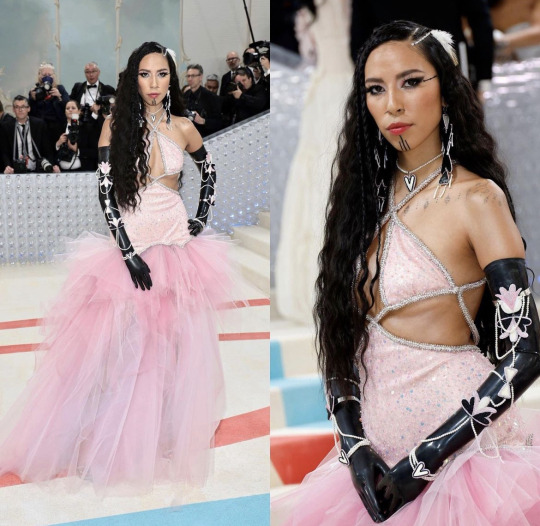
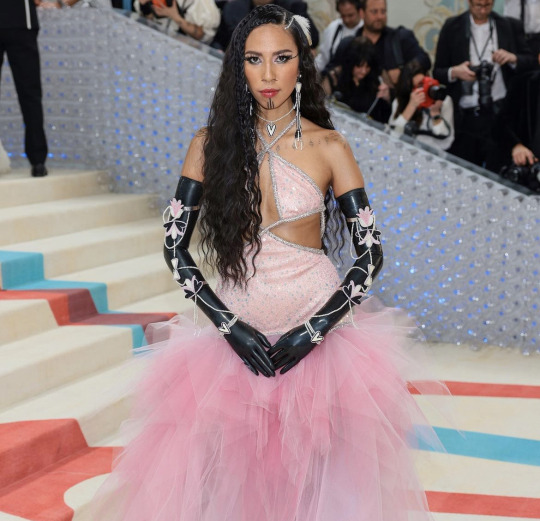
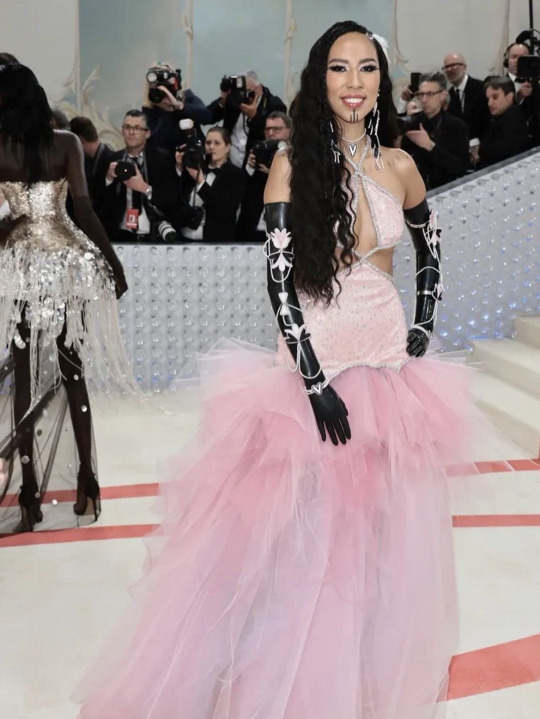
330 notes
·
View notes
Text
Indigenous Representation 🖤💛❤️
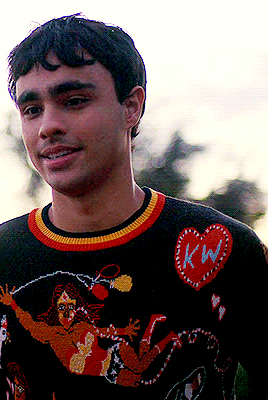
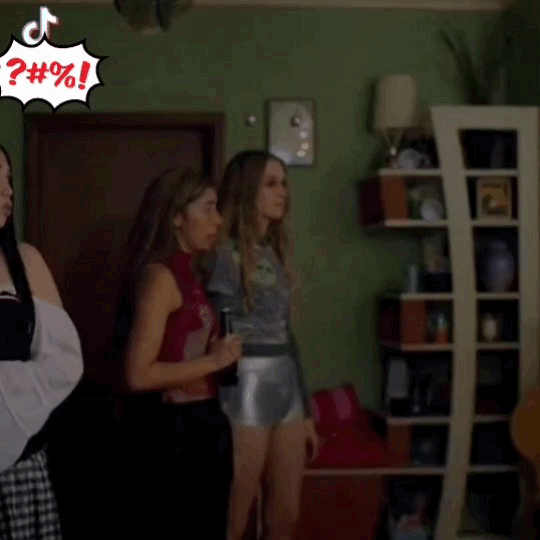
I love that there is so much representation on heartbreak high but my favourite is the indigenous representation with Missy, Malakai and Jai (supporting character)
Especially love the friendship that is created between Missy and Malakai
I like that they show how Indigenous people are treated by cops which is hard to watch but is the sad truth, the mix of language (Slang) and English. Even showing Malakai going out on country with Jai. Also love the subtle clothing and accessories.
I would have loved this representation when I was still in school. Because being a white aboriginal is not easy.
#malakai mitchell#missy beckett#heartbreak high#jai beckett#blak#indigenous#aboriginal#indigenous australians#indigenous representation#heartbreak high netflix#first nations
498 notes
·
View notes
Text
The writing blindspots in Infinity Train with respect to race
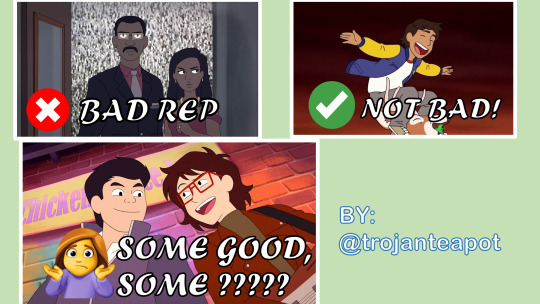
To get this out of the way, I love Infinity Train! It’s one of my favourite shows! I started writing fanfiction because of this show, and it still inspires me every day.
I really do think that Infinity Train as a whole is a very thought provoking children’s show and I applaud it for exploring darker themes relevant to psychology and psychological well-being, which are topics often overlooked not just in children’s media but for adult media as well. However, I do want people to acknowledge some of its shortcomings, especially because it is a show that is dealing with such heavy and complex topics, and also positions its human characters as coming from a world which is pretty much a stand-in for our own.
Now I know that the storyboard artists for Infinity Train were quite diverse, but I don’t really know if it’s the same for the writer's room. The reason why is that as a POC viewer, it really does seem obvious to me from the way that the POC characters were written pre-season 4, that their race was mostly an afterthought.
Okay and to be perfectly clear, this is NOT A BAD THING. This is just a neutral thing. Obviously we don’t need every single story with POC characters to have to be about their experience as a specific racialized person. There are experiences that are shared among everybody no matter what race they are. I am not saying that you need to do super in-depth research into every single cultural nuance of every ethnic minority before writing them. It depends on if you really want to delve into how their heritage or traditions or specific life experiences inform their character arc. Not every character arc is about that. And it shouldn’t be!
With that being said, I do think that perhaps the writers should have tried to consider asking themselves very basic surface level questions on how being non-white would inform the problems and conflicts their characters would face. They don't need to know the ins and outs of each culture for each of their characters, but they could have just asked “How would I feel/react to others if people made weird assumptions about me based on my race? How differently would my parents raise me if they were afraid of prejudice or discrimination?” I think they should have reflected on that before setting in stone the backstories for their POC characters, especially with respect to Grace.
Part 1: GRACE'S PARENTS
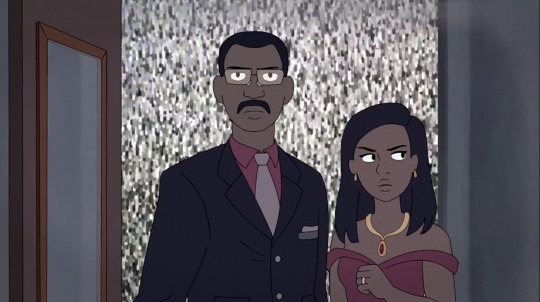
So I am not Black myself, but I have had many conversations about Grace with one of my friends in fandom who is Black, and we both do get the sense that Grace’s race was very much just an afterthought to her characterization. To be clear, this is NOT because she has very wealthy parents. I am well aware that there are Black Americans with generational wealth. However, knowing what we know about affluent Black people in the real world, how Grace’s parents treated her makes absolutely no sense.
For example, among extremely wealthy people of any race, networking and knowing the right people is of the utmost importance. This is why so many rich people send their kids to prestigious private schools so their kids can get a heads start on knowing the progeny of other one-percenters. If you look up famous people with famous kids, chances are you’ll see a list of all of the very exclusive private academies that they all went to (looking at you, The Strokes). This is the case for wealthy people of all backgrounds, not just white people. And honestly, I imagine that the pressure is at least double for the kids of wealthy POC parents to get to know the right people as early as possible to be able to open as many doors as possible, in order to mitigate the inherent disadvantage of being a racialized person.
But what did Grace’s parents do? According to her, they never sent her to school of any kind, only having private tutors teach her, and her ballet instructor only made her join the other kids in her class once for a recital or something? This is, for lack of a better term... buck wild.
In addition, her parents are American diplomats. Diplomacy is an extremely people-oriented position. If anything, her parents would want her to not only be in the best private school, but to be the best student in school, to know the best people, to join the school clubs that all the other diplomats’ kids are in, and train her from a young age to be a social butterfly. Yes I know that diplomats will often leave their home country and be stationed somewhere else for long durations, and yes their kids could be taken out of school then, but some diplomats just enroll them in a different institution in the visiting country, or not take them out of school at all. This is what the IB Program was invented for, actually. Her parents being diplomats does not justify never enrolling Grace in school. In fact, it makes it less justifiable.
The fact that they did the extreme opposite of that is so illogical to me that I wonder if perhaps the writers just cobbled together a whole bunch of tropes that they think apply to rich people without actually checking if any of it makes sense, doubly so for rich people who are non-white.
I think the reason why is because they wanted Grace’s parents to stifle her growth and her natural social skills, but on the Train, she can be who she truly is. I definitely agree that Grace finding herself and being able to truly blossom into the girlboss she is on the Train is a great plot point from a characterization perspective. However, I do not think that it should be because she was being stifled by her parents. The solution is staring the writers right in their face, but they can’t see it because it’s a blindspot for them.
What they should have gone with is: Grace's inability to become a social butterfly and a queen bee in her daily life is because she is a dark-skinned Black girl!!!
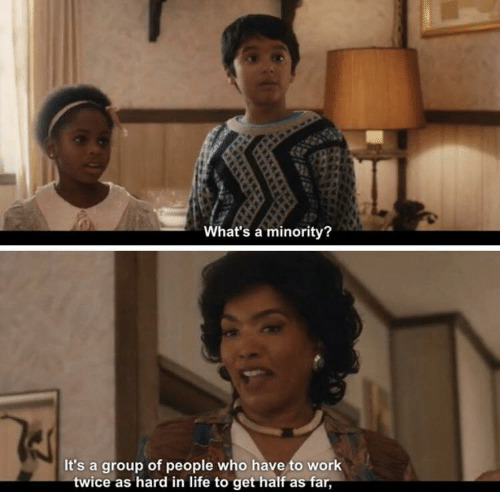
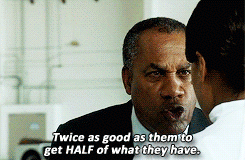
Her parents have extremely high expectations for her socially. They could have pushed her to make friends with kids she didn’t like just because they wanted to be on better terms with their parents for networking or diplomacy purposes – which they could have shown with that one girl from her ballet class. Missed opportunity! But no matter how hard Grace tries, she will never be seen as the perfect girl because of other people’s assumptions about her just based on her race.
Once she’s on the Train, Grace then uses her people skills and finds that they’re a lot more effective there, because it’s no longer Earth’s society, it’s a different world, literally! Plus this even allows her to be a little bit more mean, a little bit more honest, something she wouldn’t be able to get away with in the real world without being punished for it harder than her white peers. We already see hints of this with how she interacts with Simon, a white guy who is the same age as her.
CAVEAT: The dialogue where Grace reveals that she never went to school was something that she told Hazel in a private conversation. So it could be that she did go to school, but lied about it to seem more relatable to Hazel, who had never been around other kids before. Lying is in character for Grace because she would pretty much do anything to get on somebody’s good side. But the way that they had her voice actress deliver those lines, and the way that her expression changes when she talks about how lonely she was indicates that she was telling the truth. To be charitable, I suppose we can land on the reading that Grace told Hazel a half-truth. She did go to school, but she was frequently taken out of class or skipped semesters because of her parents’ jobs as diplomats. So her loneliness in that instant is at the very least truthful. Your mileage is going to vary on this interpretation of course.
This points to a weakness that I can sort of see in Infinity Train in general, where they push societal problems into purely the realm of personal failings. “It’s not because of society that Grace couldn’t succeed, it was solely due to her abusive parents” being just one example.
Never forget this monologue from a Black father to his daughter in Scandal:
youtube
Part 2: JESSE'S ARC WAS PRETTY GOOD THOUGH

The thing is they actually did write a POC character having to deal with a problem that was society-oriented quite well, at least in my view. Although, I am still pretty sure it was still coming from a race-blind method of writing the characters. Otherwise I feel like Jesse’s status as an Indigenous American would have come up more than a grand total of one time. That they could do this well for Jesse makes the fact that they didn’t do the same for Grace quite disappointing.
Jesse’s main issue that he had to overcome was he kept caving to peer pressure and had trouble saying no to others for fear of disappointment. Now, this problem is universal, and it’s not solely something that is specific to Jesse’s race or ethnicity or cultural background. In fact, I am quite certain that they wrote Jesse as a character without even considering that this problem he faces is relatable to POC experiences. But I definitely know a lot of POC in my life who do take on more responsibilities than they can manage, or feel a higher pressure to fit in with their peers. Hell, I’m that POC in many cases! It’s kind of like background radiation to us as minorities that we just have to do more emotional labour in order to be seen as equals. That’s just the reality of the situation. You can understand and relate to Jesse’s problem without being Indigenous/Native American, but at the same time it feels like a natural problem for him to have, because he is non-white!
I will admit that a personal blind spot of mine is I don't know and haven't had the chance to speak to too many Indigenous people, so there could be aspects of Jesse's arc that don't really make sense. If you are somebody who knows more than me, please feel free to correct me! I would love to hear how you felt about Jesse's characterization and arc as an Indigenous person!
Part 3: SEASON 4, THE ASIANS
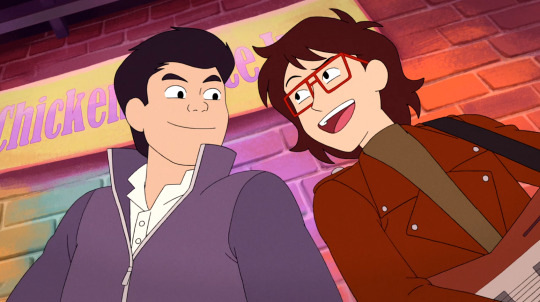
Alright now it's time to tackle stuff that I actually could have any ounce of authority talking about? Which is how they wrote Ryan and Min-Gi in Book 4. I myself am Asian-Canadian. Specifically, I am a first generation Chinese-Canadian but I've been in Canada since I was six so I find a lot of the experiences of second generation Asian-Canadians more relatable to me. In addition, my partner is fourth generation Japanese-Canadian, so his dad would be the same generation as Ryan's dad. (I also am really really into rock music, but that's besides the point.)
What they got right:
So first off, I could tell that they really did consult Asian people in writing this season, so good on them! The difference in how Ryan’s parents raised him in contrast to Min-Gi’s parents felt very natural and realistic to me. Ryan’s family is more westernized and has assimilated more into broader Canadian culture.
The fact that Ryan has an English name and not a Japanese name immediately shows that. Min-Gi’s parents not choosing an English name for him is a bit of a surprise; very few Asian immigrants go without an English name back in the 20th century. Even nowadays it’s extremely common for us to go by English or Western names that we, or our parents chose, instead of names in our native language. But there are good reasons to not choose an English name. Perhaps Min-Gi’s parents wanted him to have a closer tie to his Korean roots, or perhaps if they travelled back to Korea to visit family it would be easier for them.
Also, Min-Gi’s parents not supporting his dream of becoming a musician and want him to get a stable job in… I think it was finance? Definitely true back then as it is today. I’m not entirely sure how Ryan’s parents feel about his life choices, and we’ll get into that later.
The character arcs for Ryan and Min-Gi are excellent. This dichotomy of wanting to do the good, responsible thing that your parents want for you because they want you to have the best chance at a good life, and doing what your heart tells you to do, is an extremely relevant character arc. It’s a life decision that is not just an Asian thing, but something anybody can relate to. However, in East Asian cultures that were generally influenced by Confucianism, which includes both Korean and Japanese culture, upholding your duty as a child to not disappoint your parents in any way is something that Asian cultures are prone to emphasizing to a great degree. We see this in other media centered on the Asian immigrant experience as well, such as Kim’s Convenience, Turning Red, and Everything Everywhere All At Once.
What was a bit puzzling to me:
So I'll start off with the thing that definitely raised many many eyebrows if you were an East Asian or Southeast Asian watching the show: Why were Min-Gi's parents so friendly with Ryan's parents when they're Korean and Ryan's family is Japanese?!
So like, not to bring politics into it but… World War II happened. It affected, you know, the world and stuff. And in the Pacific Theatre (god I hate that term), the Imperial Japanese Army… invaded Korea?? Among many other countries??? And did a bunch of war crimes?????
Like, Japan was invading other countries well before WWII even started… This is common knowledge… for Asian people that is.
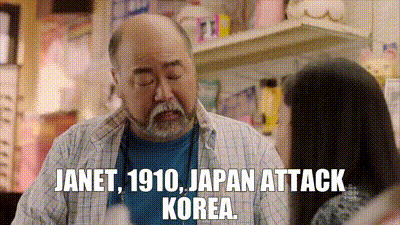
Yeah I know what you're gonna say. “But Ryan's family is Japanese-Canadian!! They wouldn't have done those war crimes! They would have been sent to internment camps!” Yeah dude, I know! My partner is Japanese-Canadian, remember?! And even if I didn't know him, we learned about the internment camps in history class. It's pretty common knowledge among progressives in Canada and the US. George Takei did a whole musical about it.
But that's not how racism works. I can speak from personal experience that the scars of WWII trauma in Chinese and Korean communities run deep. Even my own parents needed a bit of convincing to be okay with me dating my partner, and my parents were born two decades after WWII ended. My partner said that one time when he and his grandmother got into an elevator with an elderly Korean woman, and at first she was friendly, but once she realized they were of Japanese descent, the elevator ride became deathly silent afterwards.

So when you have Min-Gi’s parents, who were probably born during or slightly after WWII, immigrate to Canada, and then be like… totally okay and hunky dory pals with Ryan’s parents just because their kids were born the same day in the same hospital…? I mean sure, anything can happen. But it definitely speaks to how abnormally accepting, forgiving, and welcoming Min-Gi’s parents are.
To be clear, this isn’t something that pulled me out of the experience, personally. Yes, it is strange, but it’s not impossible for a Korean family to be super okay and friends with a Japanese family. Maybe it’s because their small town has very few Asians and so they have to stick together due to solidarity or something. Maybe Min-Gi’s parents are the type of Christians that believe in the inherent goodness of everyone and giving everyone a chance. Maybe they are just extremely progressive and see Ryan’s family as Canadian more than Japanese (highly unlikely), or they know about the internment camps and that was enough to get over their biases toward them (also unlikely). I dunno, anything can happen.
The other thing that bugged me was that they really didn’t explore Ryan’s relationship with his family to the same depth as Min-Gi’s relationship with his family.
They already set up the contrast of like, you have an immigrant who is more connected to their cultural background, and a third generation descendent who is less connected, and more alienated from his cultural background. That kind of stuff can really weigh on you as somebody who is a minority. You feel like you simultaneously aren’t Canadian enough because you aren’t white, and that you’re not enough of your cultural background because you had to assimilate, or were forced to assimilate.
Yes it makes sense why Ryan would throw himself into his music, and be disconnected from his family. But they didn’t take the time to really explore why he is that way. Ryan barely talks about his family except randomly mentioning that they don’t care what he does with his life. I don’t even know if that really makes sense that they don’t care what he does? Maybe Ryan thinks they don’t care, but his assumption is wrong? Either way they don’t explore this point that much. Even if his parents were more assimilated they would still care if Ryan had a non-standard job, such as being a musician. There is a gap between Ryan and his family/parents that was alluded to, but not explored. Feeling like you come from two worlds but not neatly fitting into either is so quintessential to the immigrant experience of Canadians (and also Americans) it’s a shame they only paid lip service to it.
I mentioned in a different post that Ryan would be monolingual while Min-Gi would be bilingual, and how this could cause tension between them. I imagine Ryan definitely feels inferior to Min-Gi in that sense of loss and disconnect with his heritage, just as Min-Gi is jealous that he feels he doesn't have the freedom to pursue his musical career in the same way that Ryan can. This is all stuff that can take a psychological toll on people, and is something which the Train as a metaphor for therapy should have been primed to tackle. But unfortunately we didn't really get that.
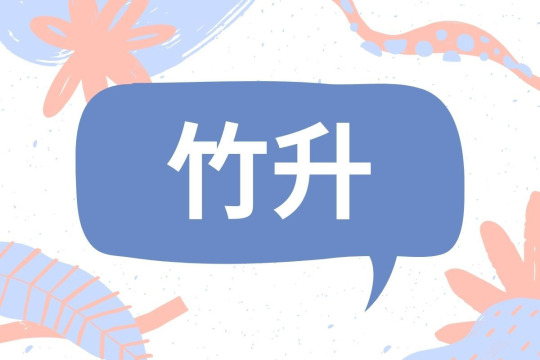
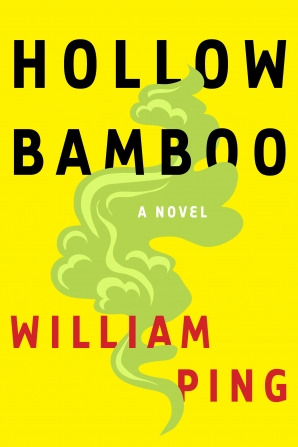
There is a term among the Chinese Diaspora known as “Hollow Bamboo (竹杠)” or “Rising Bamboo (竹升)” [more info]. It's an insult tossed at kids of Chinese ethnicity from judgemental adults for being unable to read/write Chinese or who cannot speak Mandarin/Cantonese/other Chinese languages fluently because they've been “too westernized”. They say we “look Chinese, but are hollow inside, like bamboo.” I don't know if there are equivalent terms for other Asian diaspora/immigrant communities but there must be. This term is controversial, and in my own opinion very unfair, because it blames the kids for this loss of cultural identity when there are so many different factors at play that makes them lose it, all of them outside of their own control.
Again, I think this is a blindspot from the writers just not understanding how much this loss of cultural identity is such an integral part of the experience of being an immigrant, and that it's not only felt in first or second generation Asian-Canadians, but also third or fourth generation, and beyond. It's scary to go out there and redefine what your culture means to you, and how to pass it on to the next generation.
CONCLUSION
So there you have it, a summary of the strengths and the weaknesses in Infinity Train as it pertains to writing about racialized characters. Just want to restate that a lot of what I pointed out is pretty minor in the grand scheme of things and I do overall think the writing is solid. I am not going into this to say that I expected the writers to do a good job, because generally my expectations for media and pop culture to portray POCs respectfully is quite low. At least they didn’t fall back on tired stereotypes, which is a low bar to clear, but it is where the bar still is these days.
If on the off chance Infinity Train does get uncancelled and renewed for more seasons, I hope they take these lessons and craft better narratives for their POC characters. Maybe hire some more non-white writers while you’re at it!
#infinity train#infinity train book 2#infinity train book 3#infinity train book 4#infinity train book two#infinity train book three#infinity train book four#writing poc#writing black people#writing asian people#writing indigenous people#poc representation#black representation#asian representation#indigenous representation#grace monroe#jesse cosay#ryan akagi#min gi park#rymin#analysis#character analysis#media analysis#cultural identity#olivia pope#rowan pope#immigrant parents#long post#raceblind writing
54 notes
·
View notes
Text
Be at peace Sacheen Littlefeather
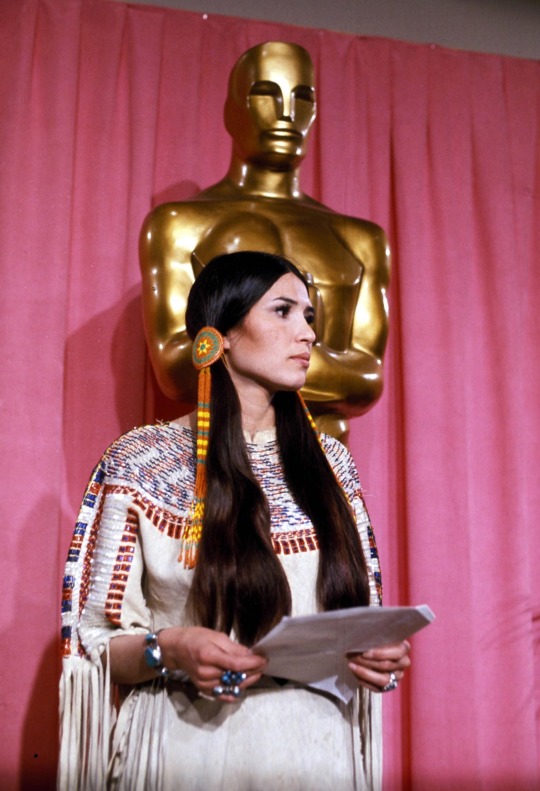

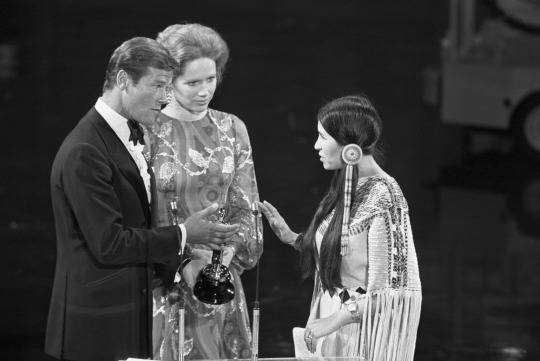

#sacheen littlefeather#activism#indigenous women#indigenous rights#indigenous representation#feminism#intersectional feminism
556 notes
·
View notes
Text
okay i am EXTREMELY EXCITED ABOUT THIS FILM and i need other people to be excited about this film because we need more films about sámi people and anti-indigenous bs in scandinavia:
ellos eatnu: let the river live is about the alta dam controversy in norway in the 1970s-1980s (tl;dr the norwegian government wanted to build a dam in northern norway that would have flooded a sámi village). summary from Kunstnernes Hus:
Ester moves to Alta in the autumn of 1979 and starts her first job as a substitute teacher. To fit in at school, she keeps her Sami background hidden.
Ester's cousin is a Sami activist and participates in the demonstrations against the planned hydroelectric power plant in Altaelva. When Ester joins him at the protest camp, she grows more and more aware of her Sami roots. She throws herself into a conflict-filled battle for the preservation of the river and for the right to be herself.
Ellos eatnu - La elva leve is a drama with deep conflicts about a young person's courage in the fight for Sami rights in one of the most important events in Sami and Norwegian history.
i am EXTREMELY EXCITED ABOUT THIS and i want people to blow this film UP tbqh just!!!!!!!! AAAAA
youtube
#sami#sámi#ellos eatnu la elva leve#indigenous rights#indigenous representation#norway#film#alta dam controversy#i'm just like /VIBRATES AT SPEED OF LIGHT/#Ella Marie Hætta Isaksen
154 notes
·
View notes
Note
season 2 of what if plans on introducing an original MCU character named Kahhori, a young Mohawk woman who seeks to discover her powers after the Tesseract crash-lands in the Haudenosaunee Confederacy in pre-colonial America. Thoughts?
I mean as long as they avoid NGa*man's mistakes in 1602 (for those that aren't familiar steve rogers was still captain america and blonde and blue eyed but like adopted by native americans so it was a shitshow). I'm excited to see who they get to voice Kahhori!!!
and by extension they better have a full cast of indigenous voice actors!!!
mod laina
update:
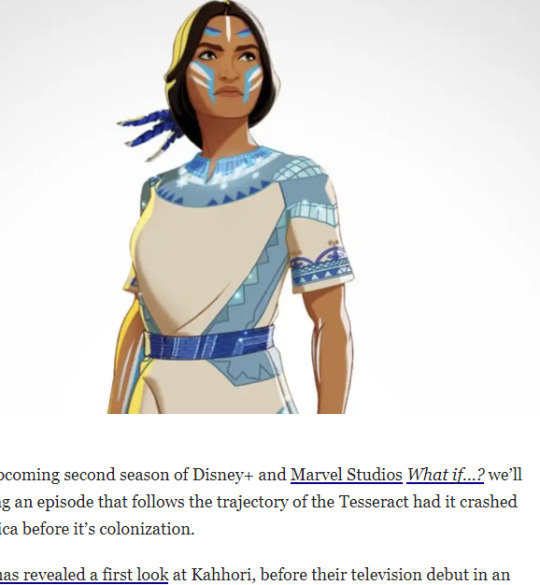
51 notes
·
View notes
Text
EP 23 CLIP: Maria and Aly and Rachel from @outinthewildspodcast talk about the importance of Reservation Dogs depicting recognizable yet subtle cultural references, including showcasing an Indigenous brand of humor – with the help of a quote from Paulina Alexis, who plays Willie Jack! Listen to Episode 23 of Leftist Teen Drama now wherever you get your podcasts.
34 notes
·
View notes
Text
The Ali Nahdee Test
please watch my video One Scene For Hope on Youtube:
youtube
#ali nahdee test#aila test#rhymes for young ghouls#native women#indigenous women#native representation#ndn#indigenous representation#Youtube
31 notes
·
View notes
Text

Reservation Dogs 3.03 "Deer Lady"
This episode was a real gut punch.
#reservation dogs#rez dogs#boarding school#deer lady#indigenous lives matter#mmiw#native american#indigenous representation#missing and murdered indigenous women#indigenous history#taika waititi#sterlin harjo#d'pharaoh woon a tai#bear smallhill#native american boarding schools#native boarding school#indigenous boarding school#american indian boarding schools
183 notes
·
View notes